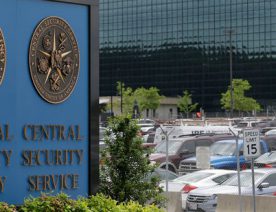
September 7, 2021
Americans have been consistently opposed to warrantless surveillance of phone calls and emails of American citizens for monitoring threats against the United States, but opposition to such surveillance outside of the country has increased over the past 10 years.
Twenty years after the terrorist attacks on September 11, 2001, less than 3 in 10 adults consider warrantless government analysis of internet activities and communications an acceptable means for monitoring threats against the United States. There is more support for public surveillance like the installation of cameras in public places to watch for suspicious activity, but other measures are less popular including random searches at airports involving full-body scans or pat downs or using ethnic or racial profiling to determine who gets screened.
As U.S. forces are withdrawn from Afghanistan after nearly 20 years, most Americans – Republicans and Democrats – think the war in Afghanistan was “not worth fighting.” The AP-NORC survey was conducted August 12 through 16, 2021, as Taliban forces quickly swept through the countryside and cities of Afghanistan. The Afghan government collapsed after the Taliban entered the capital city of Kabul on August 15. Majorities of Americans also say the war in Iraq was not worth fighting.
Many Americans view international extremist groups as a threat to the country’s security, but domestic extremists are seen as the greater threat. In addition, there is more anxiety about danger to the country posed by the spread of misinformation, cyberattacks, or infectious disease. For the most part, both Republicans and Democrats tend to be against warrantless surveillance by the federal government in response to threats. However, Republicans are more opposed than Democrats to the government monitoring domestic phone calls (74% vs 62%), internet searches (59% vs 46%), text messages (70% vs 59%) or emails sent within the United States (67% vs 60%).
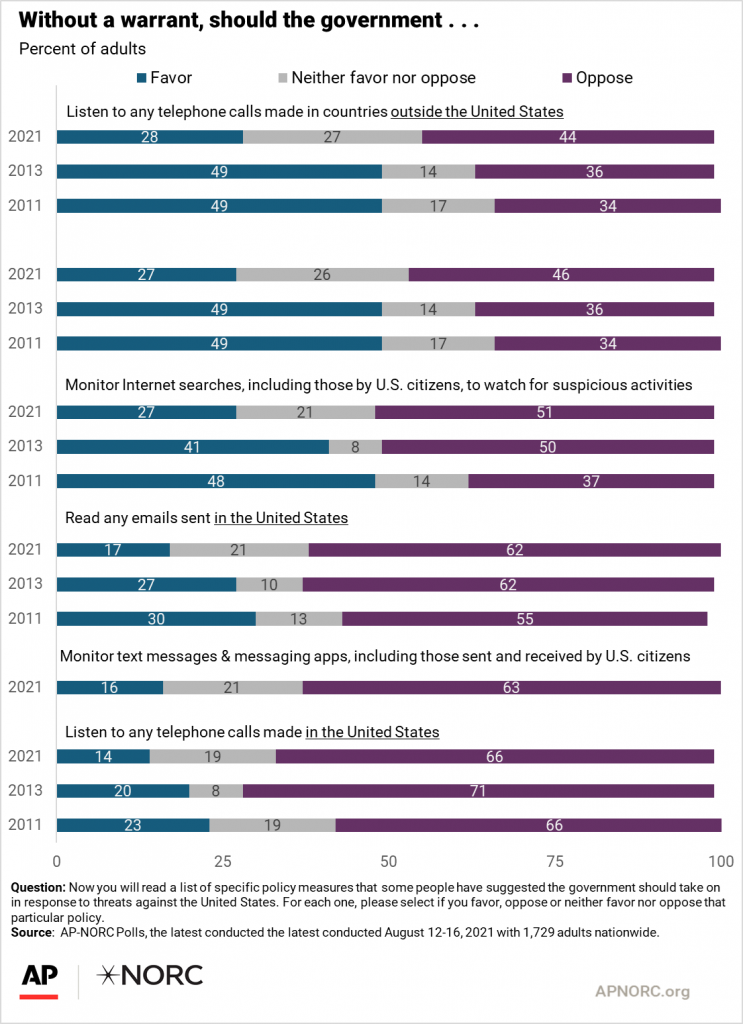
Similarly, support for possible actions taken in response to threats on the United States has dropped. While most Americans continue to support surveillance cameras in public places, they are now less positive about the measure. Most Americans approved of random searches at airports, but only 44% continue to favor that.
Most people oppose racial and ethnic profiling, and that opposition has grown over the past ten years. Black (68%) and Asian Americans (71%) are more likely than white (59%) or Hispanic Americans (59%) to oppose it.
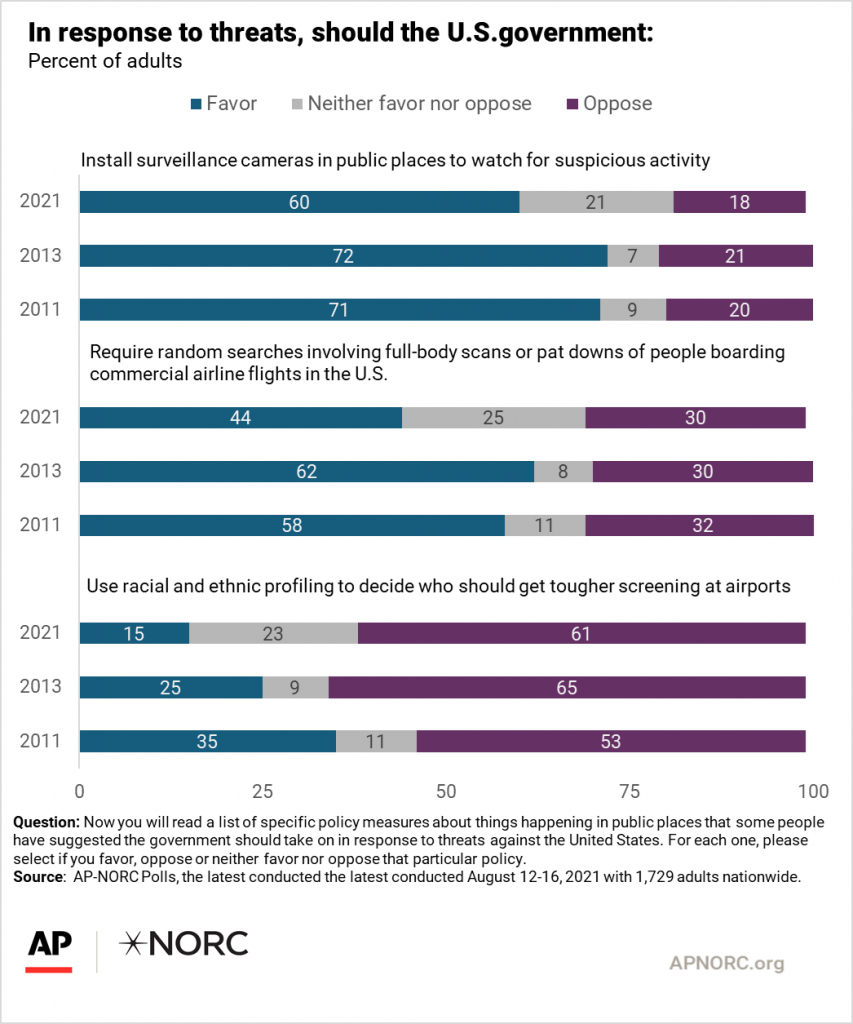
These days, Americans are more concerned about the threat to the United States from the spread of misinformation, cyberattacks, and extremists based within the United States. About 4 in 10 are concerned about dangers to the country from about Russia’s influence, Iran and North Korea’s nuclear programs, or illegal immigration.
There are significant partisan divisions. Democrats are most concerned about climate change, misinformation, the spread of infectious disease, and the threat of domestic extremists. Republicans are more concerned than Democrats about illegal immigration, China’s influence, and Iran’s nuclear program.
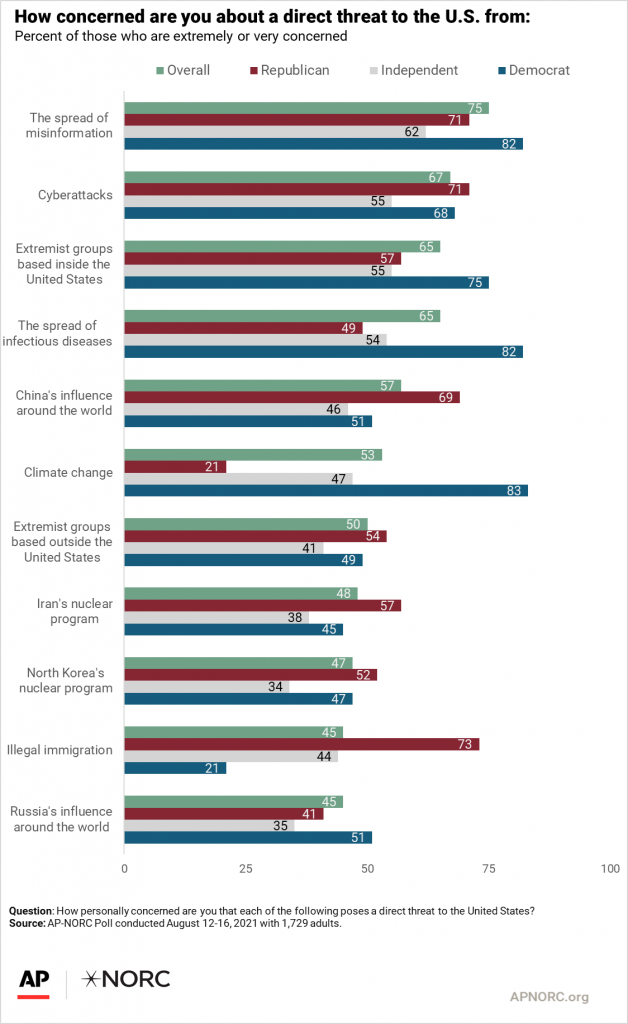
Overall, there has been little change since 2019 in the public’s view of how involved the United States should be in the world’s problems. Only 27% of the public would like to see the United States take a bigger role in resolving problems around the world; most would prefer the United States be less active or maintain its current level of involvement.
In January 2019, 43% of Democrats said the United States should take a more active role in solving the world’s problems, and 46% of Republicans preferred to see the country’s involvement to be kept at its existing level. Now, 49% of Democrats think U.S. role is about right compared with only 29% of Republicans.
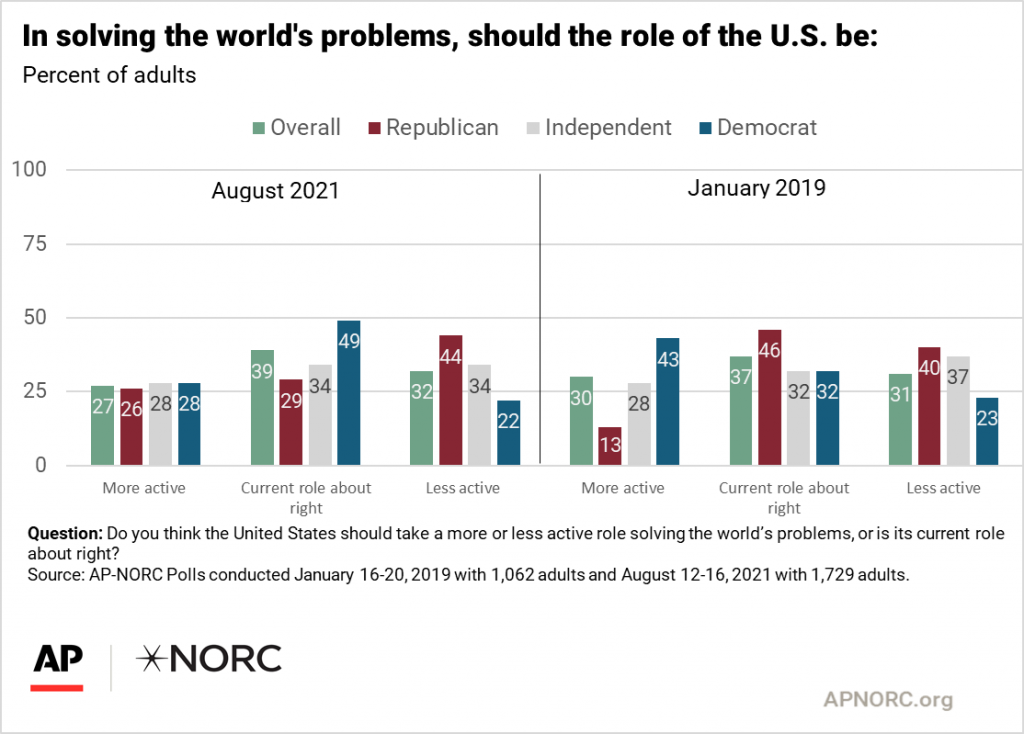
The nationwide poll was conducted August 12-16, 2021 using the AmeriSpeak® Panel, the probability-based panel of NORC at the University of Chicago. Online and telephone interviews using landlines and cell phones were conducted with 1,729 adults. The margin of sampling error is +/- 3.2 percentage points.
Asian, Black, and Hispanic respondents were sampled at a higher rate than their proportion of the population for reasons of analysis. The margin of sampling error for the 318 completed interviews with Asian respondents is +/- 8.2 percentage points, for the 337 Black respondents it is +/- 6.7 percentage points, and for the 301 Hispanic respondents it is +/- 7.5 percentage points.
Suggested Citation: AP-NORC Center for Public Affairs Research. (September, 2021). “Opposition to U.S. Government Surveillance Grows.” https://apnorc.org/projects/opposition-to-u-s-government-surveillance-grows/





